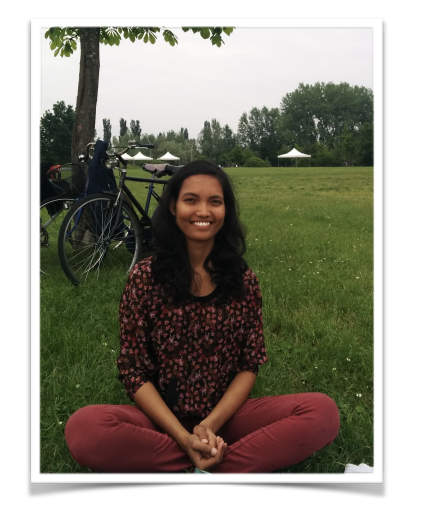

Meet the Glorious Women of Astronomy
What drove Disha Sawant in her passion for outreach apart from her academic interests? Find out in this Glorious Women blog.
Reportage by Kanchan Soni and Deepali Agarwal
What drove you to pursue Astrophysics as a research career?
I had an immense fascination as a kid about the stars. I used to sit for hours after dinner on my small balcony just looking at them! During schooling, I learnt a lot about the physics that goes into fueling these giant balls and that added to my curiosity to learn more. Immediately after my High school final exam (10th grade), my parents took me to IUCAA to inquire about possible courses that I can take up! There I learnt about the systematic path that can be followed for a career in astrophysics research.
What hardships did you go through while being in your field?
In the beginning, I could not clear the entrance exams of various institutes in my first attempt. The issue was regarding not having a supportive, more student friendly curriculum in my opinion. State universities are not so keen on encouraging bachelor courses in basic sciences too. The overall syllabus and teaching methods don't really boost students’ confidence and curiosity, hence they hesitate to take it up as a viable career option. Also, subtle sexism here and there came in my way, especially in India. Most of my astrophysics training happened in Italy where I learnt how to be open and respectful to every group member. In India, I feel we still need to come out of the traditional hierarchical and political environment at the workplace.
Could you list out the achievements in the course of research?
- Received European Union’s IRAP Scholarship funding for Doctorate in Astrophysics
- Received J. C. Bose research associate fellowship in PRL, Ahmedabad
- Received Indo-French Centre for the Promotion of Advanced research associate fellowship in IIT Mumbai
Apart from research, what hobbies do you share?
Painting, swimming, drawing, creating science comics, writing for science outreach in English and Marathi.
As a member of the LVK collaboration, how would you like to contribute to the Science community?
I believe that hardcore scientific research should go hand in hand with science outreach, specially in a developing country like ours. I would like to mainly participate in outreach activity in terms of making LIGO- science (and in general astronomy-astrophysics) more comprehensible for the general public and specially for young students through writing, interactive activities, creative articles, surveys, public talks, etc specially in local languages (in my case, Marathi).
What are your thoughts on Women in STEM?
Lot of women scientists are breaking the barriers of what is expected out of the gender. On the other hand, in India, we are still struggling with basic educational rights for girls in many regions. Hence it is the responsibility of existing and established women in STEM to design a more inclusive research environment for the upcoming generation via science outreach and project based learning.
